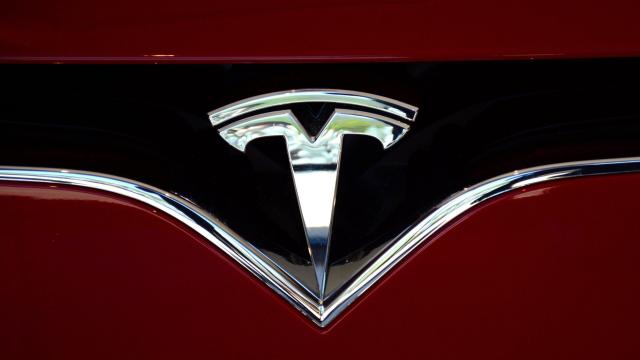Tesla has brought back its Full Self-Driving (FSD) profiles around three months after pulling the feature from an October update. The three driving profiles, labelled “Chill” “Average” and “Assertive,” dictate the ways FSD equipped Tesla’s behave in certain scenarios and the amount of risk the vehicles may take when making decisions. Images of the profile settings, first highlighted by The Verge, show in-vehicle descriptions associated with the settings which dictate the vehicle’s follow distance, and frequency of lane changes.
I guess “Road Rage Mode” didn’t fit on the screen pic.twitter.com/6pJNFvrJXA
— David Zipper (@DavidZipper) January 9, 2022
Of particular interest here is FSD’s assertive profile, which, according to the images, will “have a smaller follow distance, perform more frequent speed lane changes, will not exit passing lanes and may perform more rolling stops.” Tesla’s wording around rolling stops here remains unclear, particularly since rolling stops at stop signs in the U.S. are generally illegal. Gizmodo reached out to Tesla for comment but has not heard back.
The “Chill” profile, by contrast, aims to have Teslas maintain a larger following distance and perform fewer speed lane changes, according to images posted by Twitter user @digitalhen. FSD’s “Average” profile unsurprisingly strives to strike a middle ground, though like assertive, it may also engage in more rolling stops.
FSD profiles were part of an over-the-air update Tesla pushed late last year but were quickly pulled after CEO Elon Musk reported, “seeing some issues” which briefly left some drivers unable to access the FSD feature at all.
Seeing some issues with 10.3, so rolling back to 10.2 temporarily.
Please note, this is to be expected with beta software. It is impossible to test all hardware configs in all conditions with internal QA, hence public beta.
— Elon Musk (@elonmusk) October 24, 2021
Striking a balance between public safety and personal driver convenience remains one of the thorniest dilemmas for autonomous vehicle development, a tradeoff dictated as much by philosophy as technical performance. To put that into perspective, one of the top rallying cries amongst autonomous vehicles’ supporters revolves around the argument that more AVs on roads will reduce crashes since the majority of those crashes currently result from human error. However, a 2020 study from the Insurance Institute for Highway Safety (IIHS) estimated AV systems may only eliminate around a third of car crashes if those systems were designed to drive in ways that resemble humans, as FSD’s assertive mode appears to.
Instead, the report determined AV systems would need to be designed to prioritise safety over rider preferences if the grandest promises of AV safety are to ever become reality. Though crashes resulting from “sensing and perceiving errors” and incapacitation (factors self-driving vehicles would presumably solve for) accounted for 23% and 10% of total crashes respectively in the IIHS study, another 40% were the result of planning and deciding errors like speeding and illegal manoeuvres, which aren’t necessarily solved simply by moving towards autonomous systems.
“Building self-driving cars that drive as well as people do is a big challenge in itself,” IIHS Research Scientist and lead author of the study Alexandra Mueller said in a statement. “But they’d actually need to be better than that to deliver on the promises we’ve all heard.”
Tesla’s foray into assertive driving comes despite mounting scrutiny into FSD and Tesla’s Autopilot driver assistance feature from regulators and safety advocates The National Highway Traffic Safety Administration opened a formal probe into Autopilot last summer following rising cases of vehicles equipped with the automated system colliding with emergency response vehicles. The company was also criticised by the head of the U.S. National Transportation Safety Board late last year for its efforts to expand the FSD beta to more drivers before addressing “basic safety issues.” The first serious crash involving FSD appears to have occurred in November, according to a complaint filed with the National Highway Traffic Safety Administration.
None of that has seemed to deter Tesla from its FSD expansion. In fact, last week Musk announced his company would raise the FSD price to $US12,000 ($16,758) — up from the previous $US10,000 ($13,965) price tag — and signalled further price increases may follow.
Tesla FSD price rising to $12k on Jan 17
— Elon Musk (@elonmusk) January 7, 2022
